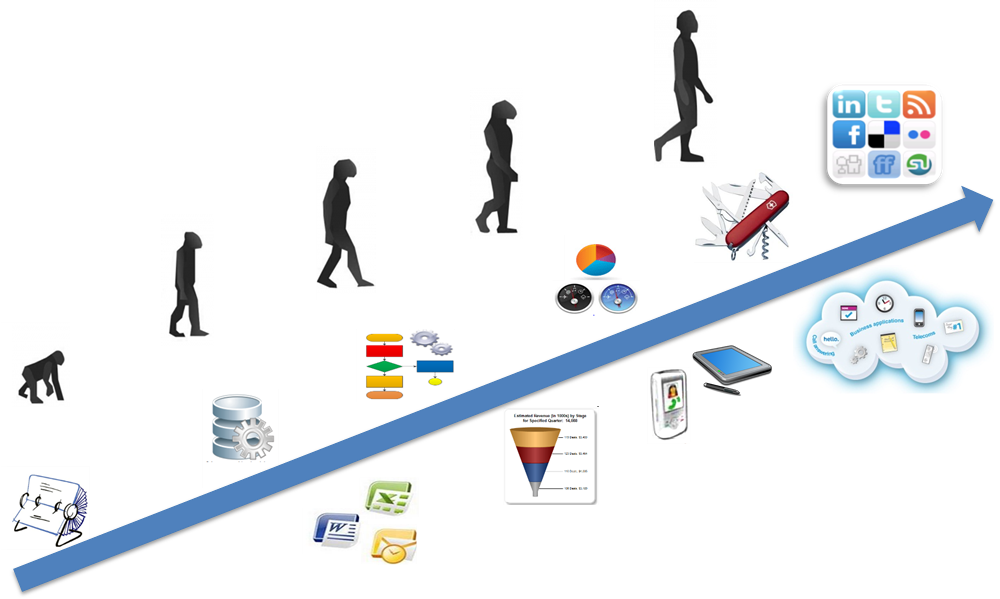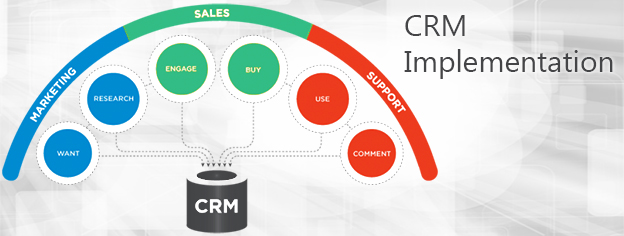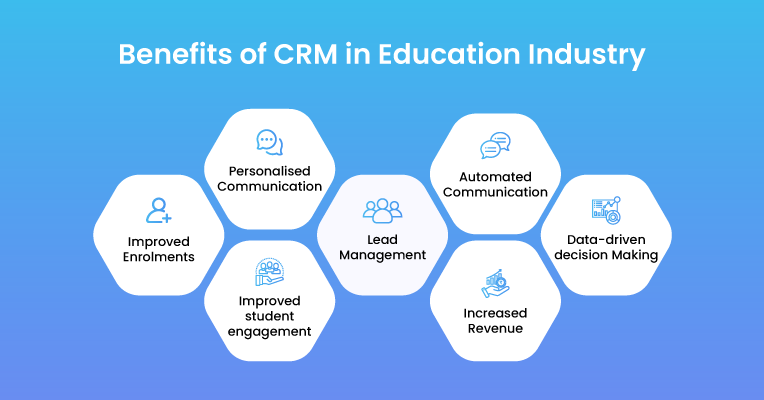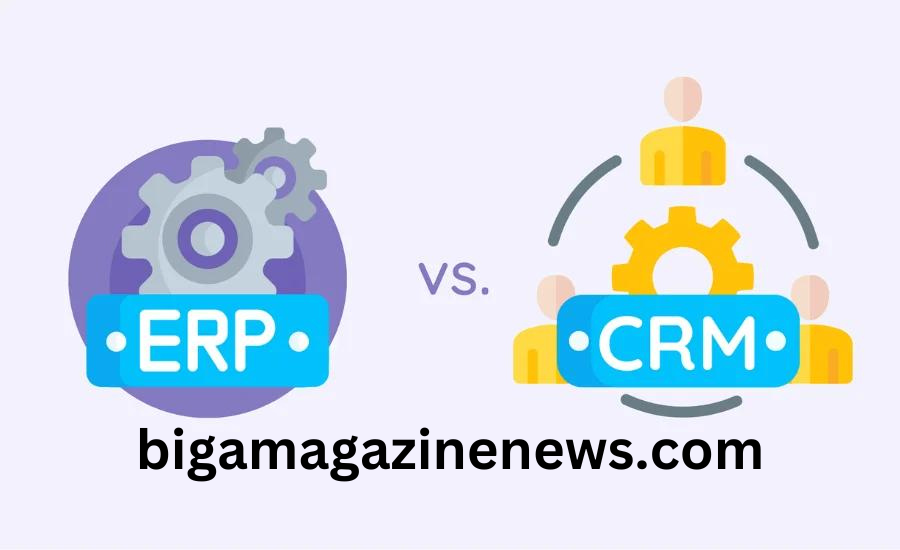In today’s fast-paced business environment, maintaining strong relationships with customers is crucial for success. Companies need efficient tools to manage customer interactions, streamline operations, and gain insights into customer behavior. This is where Customer Relationship Management (CRM) systems come into play. CRMs have evolved into indispensable tools that help businesses of all sizes centralize customer data, automate routine tasks, and enhance decision-making processes. In this article, we’ll explore the world of CRM in depth, understand its myriad benefits, and guide you on choosing the right CRM for your organization. For more detailed insights, visit https://noticviralweb.blogspot.com/2024/04/crm.
Introduction to CRM
CRM stands for Customer Relationship Management, a technology designed to manage a company’s interactions with current and potential customers. The main objective of a CRM system is simple: to improve business relationships, thereby growing your business. A CRM system helps companies stay connected to customers, streamline processes, and improve profitability.
What is CRM?
At its core, CRM is a system that consolidates customer information and documents into a single CRM database, allowing business users to easily access and manage it. Over time, many additional functions have been added to CRM systems to make them more useful. For instance, CRMs now offer functionalities like email marketing automation, lead management, customer service automation, and performance tracking. This comprehensive suite of tools provides a holistic view of customer interactions, enabling businesses to nurture relationships more effectively.
The Evolution of CRM

CRM systems have come a long way since their inception. Initially, CRMs were basic digital Rolodexes that stored customer contact information. Over time, they have evolved into complex systems that integrate with various business processes, offering insights and analytics that drive strategic decisions. Modern CRMs leverage artificial intelligence and machine learning to predict customer behavior, personalize interactions, and automate mundane tasks, allowing businesses to focus on strategic initiatives.
The Importance of CRM in Business
- Improved Customer Relationships: By providing businesses with insights into their customers’ preferences and behaviors, CRM systems enable companies to tailor their services and communications effectively. This personalization fosters stronger customer loyalty and engagement.
- Increased Efficiency: Automating routine tasks such as data entry, follow-up emails, and customer segmentation streamlines operations, allowing employees to focus on more strategic activities. This efficiency leads to cost savings and improved productivity.
- Data Management: A centralized data repository ensures easy access to customer information and interaction history, improving data analysis and decision-making processes. This access helps businesses identify trends, opportunities, and potential issues early.
- Enhanced Communication: CRM systems facilitate better communication within organizations by providing access to customer information across different departments. This ensures that all team members have up-to-date information, leading to more informed interactions with customers.
- Sales Growth: By identifying cross-selling and upselling opportunities, CRM systems help increase sales revenue. Sales teams can prioritize leads based on their likelihood to convert, optimizing their efforts and maximizing return on investment.
For more tips and strategies, check out https://noticviralweb.blogspot.com/2024/04/crm.
Choosing the Right CRM for Your Business
Selecting the right CRM system is crucial for maximizing its benefits. With numerous options available, it’s essential to evaluate your business needs and match them with the right features and functionalities.
Key Features to Look for in a CRM
- Ease of Use: A user-friendly interface ensures that your team can easily navigate and utilize the system’s features. An intuitive design reduces training time and encourages user adoption.
- Customization Options: The ability to customize the CRM to fit your business processes is vital for effective implementation. Look for CRMs that allow you to tailor fields, workflows, and reports to match your specific needs.
- Integration Capabilities: Ensure that the CRM can seamlessly integrate with your existing systems and tools, such as email marketing platforms, e-commerce software, and social media channels. This integration ensures data consistency and reduces manual data entry.
- Scalability: Choose a CRM that can grow with your business, accommodating more users and increased data volume as needed. Scalability ensures that your CRM investment remains relevant as your business expands.
- Analytics and Reporting: Advanced analytics and reporting capabilities allow you to derive insights from customer data, track performance metrics, and make informed business decisions.
- Mobile Accessibility: With remote work becoming more prevalent, mobile access to CRM systems is essential. Ensure your CRM offers a mobile app or responsive design that allows your team to access critical information on the go.
Popular CRM Solutions
- Salesforce: Known for its robust features and extensive customization options, Salesforce is a popular choice among large enterprises. It offers a comprehensive suite of tools for sales, service, marketing, and analytics, making it a versatile solution for complex business needs.
- HubSpot: Ideal for small to medium-sized businesses, HubSpot offers a free version with essential CRM features, along with paid plans for more advanced capabilities. Its user-friendly interface and integrated marketing tools make it a great choice for growing companies.
- Zoho CRM: Zoho CRM is known for its affordability and ease of use, making it a great option for startups and small businesses. It offers a wide range of features, including sales automation, lead management, and customer support tools.
- Microsoft Dynamics 365: This CRM solution integrates seamlessly with other Microsoft products and is suitable for businesses already using the Microsoft ecosystem. It offers advanced AI capabilities and flexible deployment options, making it a powerful choice for large organizations.
- Pipedrive: Designed for sales teams, Pipedrive focuses on pipeline management and sales automation. Its intuitive interface and visual sales pipeline make it easy to track deals and manage sales activities.
Explore more about these CRM solutions at https://noticviralweb.blogspot.com/2024/04/crm.
Implementing CRM in Your Organization

Successfully implementing a CRM system involves more than just purchasing software. It requires careful planning, training, and ongoing management to ensure that the system delivers the expected benefits.
Steps to Successful CRM Implementation
- Define Your Goals: Clearly outline what you want to achieve with your CRM system, whether it’s improving customer service, increasing sales, or enhancing marketing efforts. Having well-defined goals helps guide the implementation process and measure success.
- Engage Stakeholders: Involve key stakeholders from various departments in the decision-making process to ensure that the CRM system meets the needs of all users. Their input will help shape the system’s features and functionalities.
- Customize the System: Tailor the CRM to fit your business processes and workflows. Customization ensures that the system aligns with your specific needs and enhances user adoption.
- Train Your Team: Provide comprehensive training to ensure that your team can effectively use the CRM system and leverage its features to meet your business goals. Ongoing training and support are crucial for maximizing the system’s potential.
- Monitor and Adjust: Regularly review the CRM’s performance and make necessary adjustments to optimize its use. Continuous monitoring helps identify areas for improvement and ensures that the system evolves with your business needs.
- Encourage User Adoption: Promote the benefits of the CRM system to your team to encourage adoption and maximize its impact on your business operations. Highlight success stories and demonstrate how the system can make their work more efficient.
Overcoming Common CRM Challenges
- Data Migration: Transferring data from existing systems to a new CRM can be challenging. It’s essential to plan and execute the migration process carefully to avoid data loss. Consider using data migration tools or services to streamline the process.
- User Resistance: Employees may resist adopting a new system due to unfamiliarity or perceived complexity. Providing adequate training and support, along with demonstrating the system’s benefits, can help mitigate this issue.
- System Complexity: Some CRM systems can be overwhelming due to their extensive features. Choose a CRM that matches your business needs and offers scalability as you grow. Focus on implementing core features first and gradually expand as your team becomes more comfortable with the system.
Learn more about overcoming CRM challenges at https://noticviralweb.blogspot.com/2024/04/crm.
Benefits of CRM for Various Industries

Different industries can benefit from CRM systems in unique ways. Here’s how CRM can enhance operations across various sectors:
Retail
- Personalized Marketing: CRM systems help retailers understand customer preferences, enabling them to offer personalized promotions and improve customer engagement. By analyzing purchase history and browsing behavior, retailers can tailor marketing campaigns to individual customers.
- Inventory Management: Integrating CRM with inventory systems allows retailers to track stock levels and manage supply chains effectively. This integration ensures that products are always available when customers need them, reducing stockouts and excess inventory.
- Customer Loyalty Programs: CRMs enable retailers to create and manage loyalty programs that reward customers for repeat purchases. These programs foster customer loyalty and encourage repeat business https://noticviralweb.blogspot.com/2024/04/crm.
Healthcare
- Patient Management: CRM systems streamline patient information management, appointment scheduling, and communication, improving the overall patient experience. By centralizing patient data, healthcare providers can offer personalized care and enhance patient satisfaction.
- Data Security: CRMs ensure that sensitive patient data is stored securely, complying with industry regulations such as HIPAA. This security is crucial for maintaining patient trust and avoiding data breaches.
- Patient Engagement: CRM systems enable healthcare providers to engage with patients through personalized communication, reminders, and educational content. This engagement improves patient adherence to treatment plans and enhances health outcomes.
Financial Services
- Customer Segmentation: CRM systems help financial institutions segment their customer base and tailor products and services to meet specific needs. By understanding customer demographics and behavior, financial institutions can offer targeted solutions that address unique customer requirements.
- Risk Management: By analyzing customer data, CRM systems can help identify potential risks and opportunities for financial growth. This analysis supports informed decision-making and enhances risk management strategies.
- Compliance Management: CRMs assist financial institutions in managing compliance with regulatory requirements by tracking customer interactions and maintaining detailed records https://noticviralweb.blogspot.com/2024/04/crm.
Real Estate
- Lead Management: CRM systems help real estate professionals manage leads and track interactions with potential buyers and sellers. This management ensures that no opportunities are missed and allows agents to focus on high-priority leads.
- Property Listings: CRMs enable real estate agents to organize and manage property listings, making it easier to match clients with suitable properties.
- Client Communication: CRM systems facilitate timely communication with clients, providing updates on new listings, price changes, and market trends. This communication helps build trust and keeps clients engaged throughout the buying or selling process.
Discover more industry-specific CRM applications at https://noticviralweb.blogspot.com/2024/04/crm.
Conclusion
In conclusion, a well-implemented CRM system is a powerful tool that can drive business success by enhancing customer relationships, improving efficiency, and providing valuable insights. Whether you’re a small startup or a large enterprise, investing in the right CRM solution can significantly impact your business operations and growth https://noticviralweb.blogspot.com/2024/04/crm.
CRM systems have become essential tools for managing customer interactions and optimizing business processes. By centralizing customer data, automating routine tasks, and providing actionable insights, CRMs enable businesses to make informed decisions and foster stronger customer relationships.
To further explore CRM systems and their benefits, visit https://noticviralweb.blogspot.com/2024/04/crm. Implementing a CRM might seem daunting at first, but the long-term benefits make it a worthwhile investment for any business looking to thrive in today’s competitive landscape.
